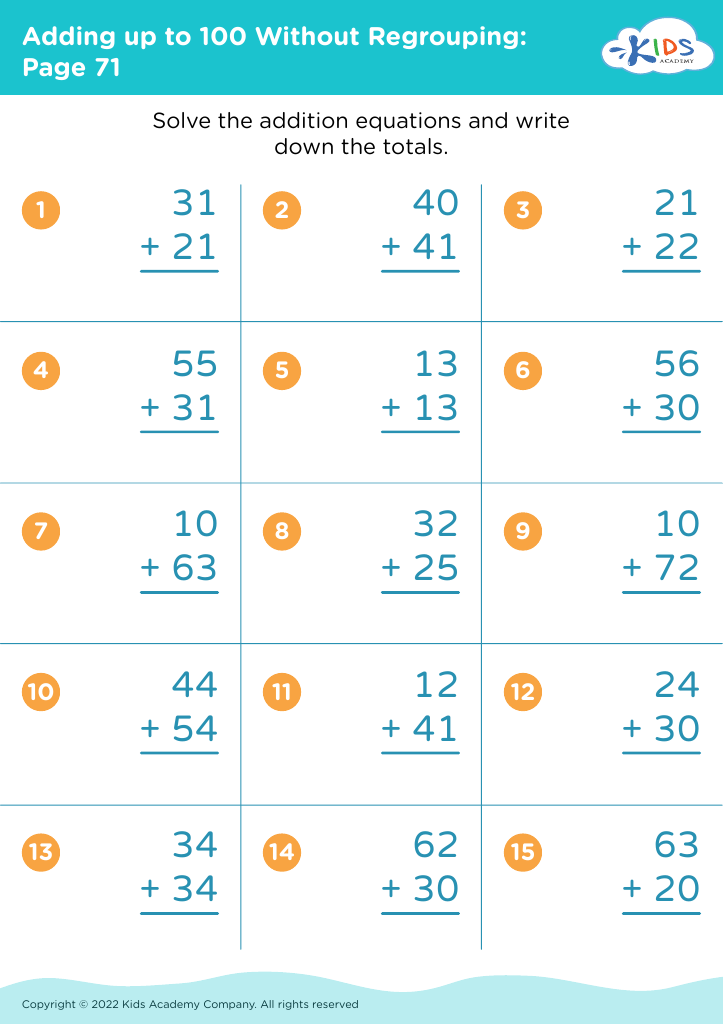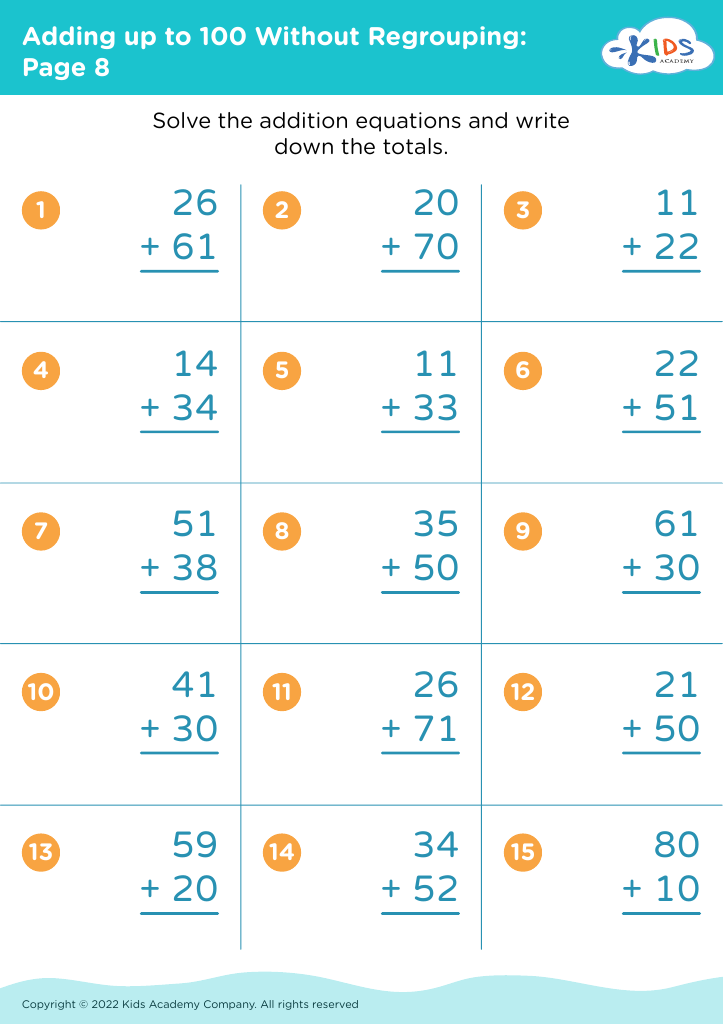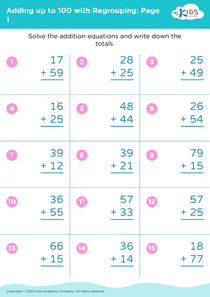Reading comprehension Adding up to 100 Without Regrouping Worksheets
3 filtered results
-
From - To
Explore our engaging "Reading Comprehension: Adding Up to 100 Without Regrouping Worksheets." These thoughtfully designed resources combine mathematical skills with reading comprehension to foster a well-rounded learning experience for early grade students. Through a variety of fun and interactive exercises, children will practice addition skills while improving their ability to understand written instructions and story problems. These worksheets encourage critical thinking and boost confidence in both math and reading. Ideal for classroom activities or at-home practice, these resources are perfect for helping young learners build a solid foundation for future success in mathematics and literacy. Start your educational journey today!
Reading comprehension is a crucial skill that extends beyond the ability to decode words; it involves understanding and making meaning from the text. For young learners, mastering reading comprehension sets the foundation for academic success across subjects, as it enhances the ability to analyze information, draw conclusions, and think critically. When students comprehend what they read, they become more engaged learners, which fosters a love for reading and learning.
Moreover, reading comprehension encourages essential life skills. In everyday situations, the ability to understand instructions, advertisements, or even bus schedules relies on strong comprehension skills. As children advance in their education, they will encounter increasingly complex texts, making early mastery vital.
Additionally, when teachers and parents actively support reading comprehension, they create a positive feedback loop that nurtures confidence and independence in students. Educators can utilize various strategies, such as asking open-ended questions or encouraging predictions, to enhance comprehension skills.
Promoting a strong foundation in reading comprehension ultimately helps students navigate their academic journey and prepares them for real-world challenges, making it essential for both teachers and parents to prioritize this skill patiently and consistently. Together, they can cultivate proficient readers who thrive both in and out of school.



















